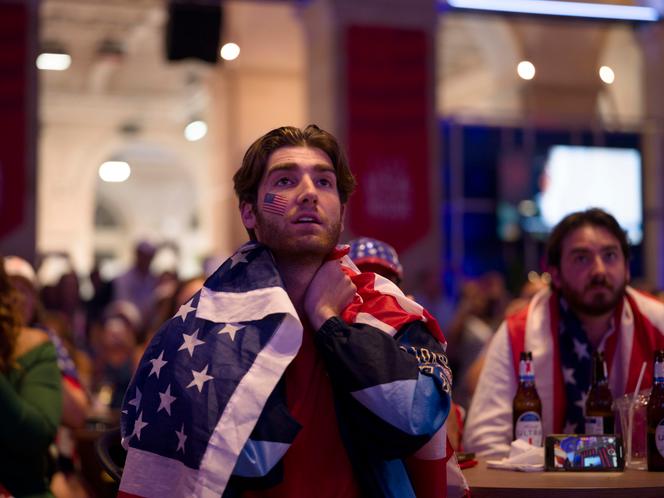


Here's a question: What do you call an important businessman with a mustache, dressed entirely in orange from sneakers to a fancy bowler hat, singing and clapping in front of the Château de Versailles beneath a blazing sun? Answer: a Dutch fan. To be honest, it's no surprise here – in fact, the scene seems quite normal during the Olympic Games. The man in question was accompanied by a group of his fellow countrymen, also dressed in orange, the Dutch national color.
There were also swarms of Americans in "Team USA" T-shirts, Mexicans wearing sombreros, Germans dressed as footballers, and six Italians draped in a huge flag. At first, they refused to display it, as a political protest against the far-right government in power in Rome. Then, as the Olympics progressed, the carnival atmosphere proved contagious.
Since the beginning of the Games, it has been the international visitors who have painted the streets of Paris with all their colors and caught the spotlight. They were the only ones you could see, the only ones you could hear, giving the impression of a Paris emptied of its Parisians and suddenly filled with new faces. Be wary of such impressions: They are deceptive, especially when it comes to foreigners. Corinne Menegaux, director of the tourist office, newly christened "Paris je t'aime," tells a very different story, with figures to back it up.
For the first week of the Olympic Games, the Paris region recorded the same number of inhabitants as during the equivalent period in 2023, even seeing a modest but unexpected 3% increase within the capital itself. But 73% of the 2.4 million visitors from outside the Paris region, from July 25 to August 2, were French, half of them coming just for the day. The remaining 27% of visitors were international, up 13.9% on last year.
The enthusiasm of these foreigners has been a delight, that's clear, and Paris continues to see itself reflected in their eyes. However, having sports venues spread across the city has also revealed an essential aspect of being a supporter: Attending the Games is, above all, about cheering for your own country and champions. Consequently, depending on the competition venues, some Paris neighborhoods suddenly took on a new identity, in a fleeting but spectacular shift.
Take Porte de Versailles, for example, in the 15th arrondissement, home to the Arena Paris Sud, the Olympic alias of the Parc des Expositions, usually better known for a different kind of physical activity, the Paris Agricultural Show. This time, it was home to table tennis, a Chinese passion with Chinese stars, Chinese medals, and a Chinese audience. As a result, it's become a new Chinatown.
You have 67.35% of this article left to read. The rest is for subscribers only.
